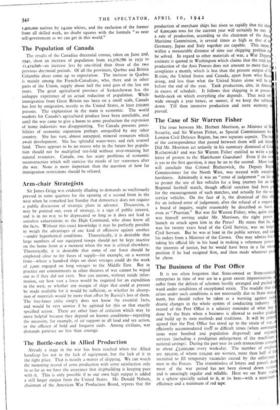Arm-chair Strategists
Sir James Grigg was evidently alluding to demands so vociferously pressed in some quarters for the opening of a second front in the west when he remarked last Sunday that democracy does not require a public discussion of strategic plans in advance. Discussion, it may be pointed out, even of strategy, is a sign of public interest, and is in no way to be deprecated so long as it does not lead to senseless exhortations to the High Command, who alone know all the facts. Without this exact knowledge it may be perfectly possible to weigh the advantages of one kind of offensive against another —under hypothetical conditions. Theoretically, it is desirable that large numbers of our equipped troops should not be kept inactive on the home front at a moment when the war is critical elsewhere. Theoretically, it is desirable that some of our force should be employed close to the bases of supply—for example, on a western front—where a hundred ships on short voyages could do the work of 2,000 engaged on long voyages to the Middle East. But in practice our commitments in other theatres of war cannot be wiped out as if they did not exist. Nor can anyone, without inside infor- mation, say how vast a force would be required for an expedition in the west, or whether any margin of ships that could at present be made available for it would be sufficient, or whether its absorp- tion of materials would be more than offset by Russia's loss of them. The free-lance critic simpiy does not know the essential facts, and would be very unwise if he agitated for this or that exactly specified action. There are other lines of criticism which may be more helpful because they depend on known conditions—regarding the necessity, for example, of air support in all land and sea action, or the efficacy of bold and frequent raids. Among civilians, war demands patience no less than courage.


























 Previous page
Previous page